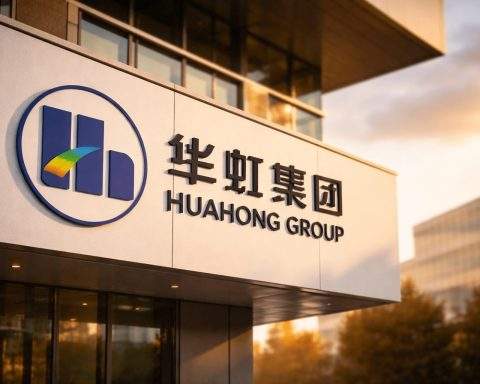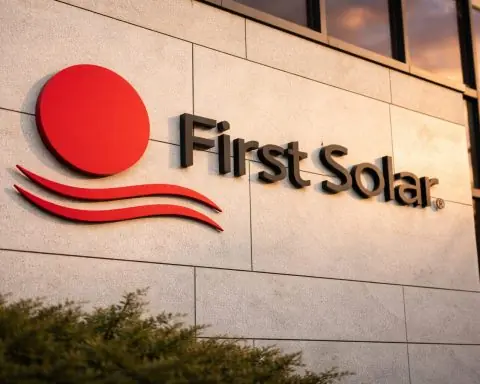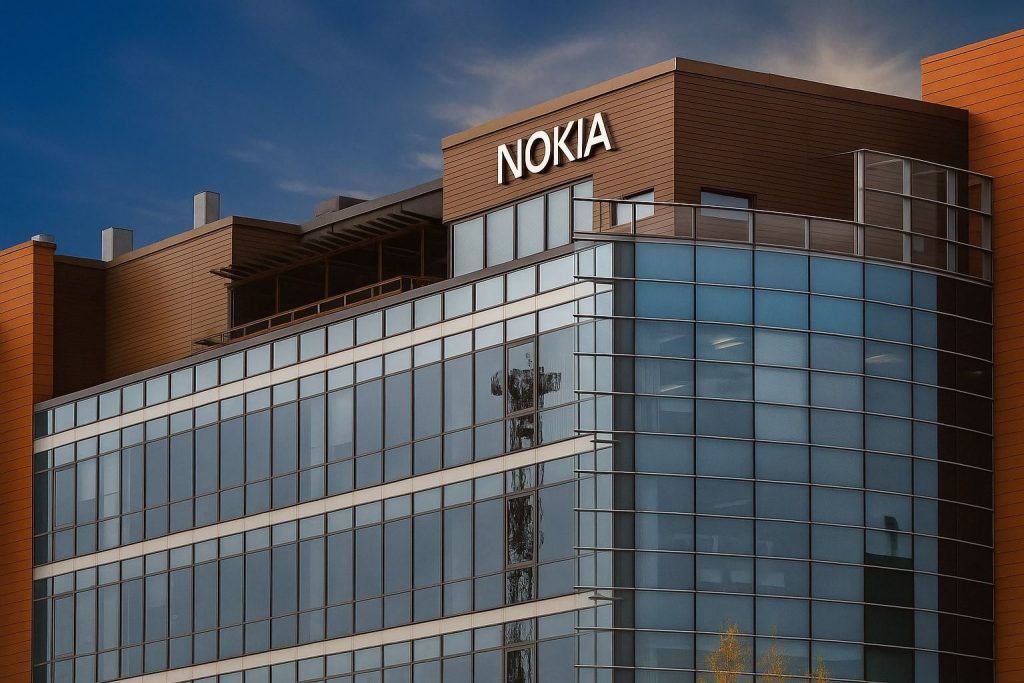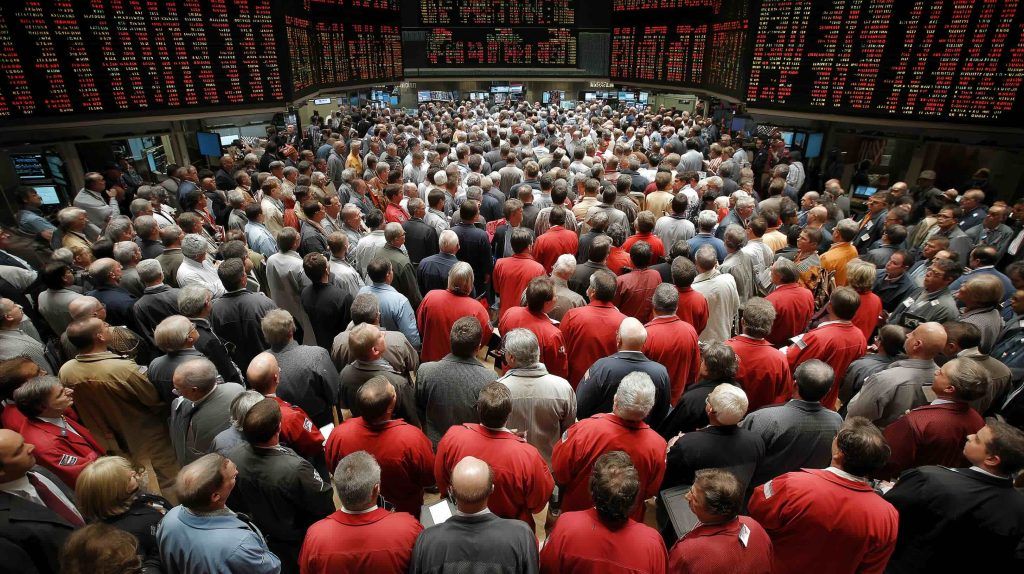London, 18 November 2025 — The UK stock market endured a sharp risk‑off session on Tuesday, with the FTSE 100 posting its biggest one‑day drop since April as global investors dumped equities on fears of an AI‑fuelled tech bubble and fading hopes of a near‑term US rate cut. 1
Key points
- FTSE 100 closed down about 1.27% at 9,552, a near one‑month low and its steepest daily fall since early April. 1
- FTSE 250 slid around 1.2%, extending a multi‑day losing streak for UK mid‑caps. 2
- Banks, miners and travel stocks led the decline, while defensives like AstraZeneca and tobacco group Imperial Brands bucked the trend. 2
- Ocado plunged more than 17% after US partner Kroger said it would close three automated warehouses. 2
- Macro backdrop turned more complex: markets priced in a December Bank of England rate cut, the PRA lifted FSCS deposit protection to £120,000, and the CMA launched its first online‑pricing crackdown under new consumer laws. 3
- A new cyber‑security report revealed over 460,000 stolen FTSE 100 employee credentials for sale on criminal marketplaces, putting operational risk firmly on investors’ radar. 4
FTSE 100 and FTSE 250: biggest daily drop since April
London’s blue‑chip FTSE 100 index finished 123 points lower at 9,552, a fall of about 1.27%, leaving the benchmark at its lowest closing level since 22 October and marking its sharpest one‑day decline since 7 April. 1
Rolling coverage from The Guardian described the move as the biggest drop since the early stages of Donald Trump’s trade war, with selling pressure intensifying into the close as US markets also weakened. 1
The mid‑cap FTSE 250 fell around 1.2%, extending its losing streak to a fifth straight session, underscoring how the sell‑off is hitting domestically focused UK names as well as global blue‑chips. 2
Earlier in the day, Evening Standard’s live blog noted the FTSE 100 was already down about 1% in afternoon trading, tracking heavy losses in Asia and on Wall Street as AI‑linked tech stocks stumbled and risk appetite faded. 5
What’s driving the UK stock market today?
Global tech wobble and AI bubble fears
Today’s sell‑off was rooted less in a UK‑specific shock and more in global concerns about stretched tech valuations and the AI trade:
- Asia‑Pacific markets hit one‑month lows, with Japan’s Nikkei down more than 3% and Hong Kong’s Hang Seng also sharply lower. 1
- US indices extended a multi‑day losing streak, with the S&P 500 dropping below a closely watched technical level amid anxiety ahead of Nvidia’s earnings. 1
- The Guardian’s live blog highlighted worries from major tech executives and investors about a potential correction in AI‑related valuations, a theme echoed in market commentary throughout the session. 1
Bitcoin added to the risk‑off tone, slumping below $90,000 for the first time since April, another sign that traders were retreating from speculative assets. 5
Fading hopes of a rapid US rate cut
A key part of the narrative was the waning prospect of a December US Federal Reserve rate cut, which had previously helped underpin global equity valuations. UK commentators pointed to the Fed’s cautious messaging and recent US data as reasons for investors to reassess risk. 1
Sector snapshot: banks, miners and travel stocks hit hardest
According to a Reuters market wrap, banks led the FTSE 100 lower for a second consecutive session, with the sector index down around 2.8%. 2
- Barclays, HSBC and Standard Chartered dropped between roughly 2.2% and 3.4%, weighing heavily on the index. 2
- UK‑focused lenders Lloyds Banking Group and NatWest were also under pressure, with Lloyds slipping around 2% and NatWest losing close to 2% in afternoon trade. 5
Industrial miners were another weak spot:
- Anglo American, Rio Tinto and Glencore all fell by about 2–3% as copper prices posted a third consecutive decline. 2
The risk‑off mood spilled into travel and leisure, where airlines and hospitality names slid around 1.5% in line with broader European peers. 2
Defensives and income plays: AstraZeneca and Imperial Brands stand out
In a session dominated by red on the screen, defensive giants and high‑yielders provided some stability.
Evening Standard reported that AstraZeneca hit a fresh record high, gaining around 150p as investors rotated into healthcare. 5
The standout name was Imperial Brands:
- The FTSE 100 tobacco group’s shares gained about 2–3%, trading near their highest level since 2017. 5
- Imperial’s full‑year results showed adjusted operating profit up about 4.6% and another 4.5% dividend increase, backed by a multi‑year share buyback programme that has returned roughly £10 billion to investors over four years. 6
Income‑focused coverage noted that Imperial remains one of the highest‑yielding FTSE 100 stocks, with some estimates putting its forward yield north of 9%, underlining ongoing demand for reliable cash flows amid market volatility. 7
Stock‑specific movers: Ocado, Greencore, ICG, FirstGroup and Crest Nicholson
Ocado tumbles on Kroger warehouse closures
Shares in Ocado plunged by around 17%, hitting their lowest level since 2013 after US supermarket partner Kroger said it would close three automated warehouses in January. The news raised fresh questions about the long‑term economics of Ocado’s international robotics partnerships. 2
Greencore: sandwich maker delivers higher profits
Convenience food producer Greencore rallied after reporting full‑year adjusted operating profit of about £125.7 million, up from £97.5 million a year earlier, driven by strong demand for its ready‑to‑eat products and ongoing margin improvement. 8
The company signalled a positive start to the new financial year and reiterated its ambition to grow margins further into 2026, helping to support sentiment around UK consumer staples stocks. 8
ICG surges as Amundi takes strategic stake
Alternative asset manager Intermediate Capital Group (ICG) rose more than 4% after Amundi, Europe’s largest asset manager, agreed to acquire a 9.9% economic stake as part of a long‑term private‑markets partnership. 2
The deal will make Amundi ICG’s largest shareholder and includes a 10‑year distribution agreement, underlining the continued push by European managers into higher‑fee private assets. 9
FirstGroup: earnings up, guidance disappoints
Transport operator FirstGroup reported a 30% jump in adjusted revenue to around £834 million and higher pretax profit for the first half of its financial year. 5
However, the shares dropped more than 10% as investors focused on cautious guidance pointing to flat earnings in the 2026/27 year, with the company still digesting restructuring and contract changes in its rail operations. 5
Crest Nicholson: housing and Budget uncertainty bite
Housebuilder Crest Nicholson issued a profit warning, saying adjusted profit for the year to 31 October would likely come in at or slightly below the low end of prior guidance (£28–38 million), citing a subdued housing market and uncertainty ahead of the 26 November Budget. 5
The group announced plans to close one divisional office and cut around 50 jobs; its share price fell more than 10%, highlighting ongoing stress in parts of the UK housing sector. 10
Policy backdrop: BoE rate‑cut bets and higher deposit protection
Markets now expect a December BoE rate cut
A fresh Reuters poll released today showed that nearly 80% of surveyed economists expect the Bank of England to cut interest rates by 25 basis points in December, lowering Bank Rate to 3.75%. A follow‑up cut to 3.50% in Q1 2026 is also widely anticipated. 3
The poll notes that headline inflation has been stuck at 3.8%—almost double the BoE’s 2% target—since July, but economists expect a gradual cooling to around 3.6% in the upcoming October data. 3
BoE chief economist Huw Pill today reiterated concerns that structural changes in the UK economy could make inflation more persistent, stressing the importance of “nominal momentum” when explaining his recent vote to keep rates on hold at 4%. 11
FSCS deposit protection limit raised to £120,000
In a significant move for savers and banks alike, the Prudential Regulation Authority (PRA) confirmed that the Financial Services Compensation Scheme (FSCS) deposit protection limit will rise from £85,000 to £120,000 per person, per institution, effective 1 December 2025. 12
The cap for “temporary high balances” arising from events such as home sales or inheritances will increase from £1 million to £1.4 million, with protection lasting up to six months. 13
While primarily aimed at strengthening consumer confidence after years of elevated inflation, the change subtly reinforces the perception that the UK banking system remains tightly regulated and systemically important, a factor equity investors need to weigh when assessing bank profitability and risk. 14
CMA launches first online‑pricing crackdown under new powers
Separately, the Competition and Markets Authority (CMA) launched its first enforcement actions under the Digital Markets, Competition and Consumers Act 2024, opening investigations into eight firms, including ticket platforms StubHub and Viagogo, fitness chain Gold’s Gym and homeware retailer Wayfair. 15
The CMA is targeting “drip pricing” and misleading countdown timers, and now has the power to impose fines of up to 10% of global turnover without going through the courts. 15
Though most of the named companies are not FTSE 100 constituents, the crackdown raises regulatory risk for UK‑listed consumer and online businesses, particularly those relying heavily on aggressive digital sales tactics. 14
Cyber‑security shock: 460,000 FTSE 100 credentials for sale
Adding a different kind of risk factor to today’s narrative, a new Socura report, “FTSE 100 for sale”, revealed more than 460,000 instances of stolen employee credentials linked to FTSE 100 companies, discovered on dark‑web marketplaces and criminal forums. 16
Key findings include:
- 15 companies each had over 10,000 stolen credentials exposed. 4
- At 59% of FTSE 100 firms, at least one employee was found using the password “password”. 4
- Over 28,000 corporate credentials were leaked via infostealer malware logs. 4
For investors, the report is a stark reminder that operational and cyber risk can rapidly translate into financial and reputational damage, especially in sectors such as finance, utilities and consumer services where trust and continuity are paramount. 17
Inflation and data watch: tomorrow’s CPI release
Markets are also bracing for new UK inflation figures, due from the Office for National Statistics at 7am on Wednesday. MoneyWeek’s live preview notes that the BoE expects September’s 3.8% CPI reading to mark the peak of this phase of inflation, with most analysts forecasting a modest fall to around 3.5–3.7% for October. 18
A softer‑than‑expected number would likely reinforce expectations of a December rate cut, while any surprise to the upside could prolong the current bout of market nerves. 3
What today’s moves mean for investors
Today’s sell‑off comes barely a week after the FTSE 100 flirted with record highs near 9,930, leaving some investors wondering whether this is the start of a deeper correction or a normal pullback after a strong rally. 14
Several themes stand out:
- Valuation and positioning reset
- After a strong run, especially in global tech and AI‑linked names, markets were vulnerable to any sign that growth expectations or rate‑cut hopes might be over‑optimistic.
- UK equities still trade at a discount to many US peers, but sectors such as banks and miners are tightly linked to global growth, commodities and policy expectations. 14
- Defensive tilt of the FTSE 100
- The index’s heavy exposure to healthcare, consumer staples and tobacco helped prevent an even larger fall today, as shown by the resilience of AstraZeneca, BAE Systems and Imperial Brands. 5
- At the same time, its sizeable banking and mining components made it sensitive to the shift in risk appetite. 2
- Policy and regulatory overhang
- Expectations for a December BoE rate cut, a looming Autumn Budget on 26 November, new FSCS rulesand active CMA enforcement all feed into the risk calculus for UK assets heading into year‑end. 3
- Non‑financial risks are front and centre
- The Socura report on stolen FTSE 100 credentials underscores that cyber‑security is now a core part of investment analysis, not an afterthought. 16
For longer‑term investors, days like today are often viewed as tests of conviction rather than clear‑cut signals to buy or sell. How you respond depends on your time horizon, risk tolerance and diversification — and any decisions should ideally be made with independent financial advice rather than on short‑term headlines alone.
This article is for information and news reporting purposes only and does not constitute investment advice or a recommendation to buy or sell any security.





